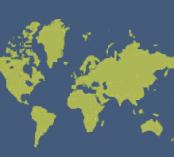
Marie Durling of World Vision presented the following statement to the Executive Board of the World Health Organization on January 25 in Geneva:
Statement from World Vision on item 13.2M, WHO’s response, and role as the health cluster lead, in meeting the growing demands of health in humanitarian emergencies (resolution WHA 65.20).
Honorable Members of the Executive Board,
I am speaking on behalf of World Vision International, an organization that stands in solidarity with front-line health workers at potential risk all over the world, from Afghanistan to South Sudan to Papua New Guinea.
This statement is also endorsed by seventeen organizations affiliated with the Safeguarding Health in Conflict Coalition, which strengthens universal norms of respect for the right to health, demands accountability for perpetrators, and empowers providers and civil society groups.
In the past year alone, many vaccine workers were murdered in Nigeria and Pakistan. Hundreds of health workers were killed in Syria. In Colombia more than 70 violent incidents against health services were recorded, and in Afghanistan the number of such security incidents exceeded 100.
We salute the Director General for publicly condemning many of the violations.
In 2012 the World Health Assembly took a critical step toward strengthening WHO’s role in responding to this problem through a resolution directing WHO to provide leadership in methods for systematic collection and dissemination of data on attacks on health facilities, health workers, health transports, and patients in complex humanitarian emergencies.
Information gathered through such systems will enable the global health community to gain the foundation it needs to develop strategies for protection of health services.
WHO has initiated consultations with UN agencies and outside experts. Additional steps are needed to realize the potential of the resolution, including a plan for implementation of the resolution, setting out budgetary requirements, and initiating pilot projects. These actions should be a priority for WHO.
We stand ready to assist WHO in developing the evidence base to increase the security of people seeking care and those who serve them.
Thank you.
Endorsers:
Agency Coordinating Body for Afghan Relief and Development
Alliance of Health Organizations, Afghanistan
Center for Public Health and Human Rights, Johns Hopkins Bloomberg School of Public Health
Doctors for Human Rights
Egyptian Initiative on Personal Rights
Global Health through Education, Training and Service
Human Rights Watch
International Federation of Health and Human Rights Organizations
International Health Protection Initiative
IntraHealth International
Irish Nurses and Midwives Organisation
Karen Human Rights Group
Management Sciences for Health
Physicians for Human Rights
Physicians for Human Rights Israel
Save the Children
Syrian American Medical Society

